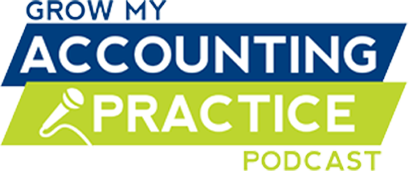William Shakespeare told us that “brevity is the soul of wit.” The always colorful Dorothy Parker adapted Shakespeare’s aphorism and taught us that “brevity is the soul of lingerie.” My humble contribution to the power of getting to the point is that brevity is essential to powerful public speaking. Whether you’re taking about the length of a speech or the number of points you plan to cover, one of the most important qualities of effective speeches is that they’re relatively short. Think Abraham Lincoln’s Gettysburg Address and Dr. Martin Luther King Jr’s “I Have a Dream” speech. They’re both powerful in their brevity.
A speech’s length is only one factor you need to consider when you’re preparing for an event. Here are seven more techniques that will make your speech memorable:
1. Deliver a performance, rather than a speech. A speech is primarily about the words that you speak, but a performance is so much more. It’s inflection, gesture, tension, resolution, and suspense. Don’t believe me? Go see a one-man (or woman) play and you’ll instantly see what I mean. Performers work hard at capturing and keeping an audience’s attention, and words are only one tool in their arsenal. Don’t stop working once you’ve written the text of your speech.
2. Use the power of eye contact. Bill Clinton was the master of eye contact. Members of the audience during his speeches felt like they were leaving after having made a personal connection with Clinton – every single one of them. Your audience is made up of individuals, and you should make an effort to make eye contact with each of them. Eye contact makes a person feel personally engaged in a speech, and engaged listeners are much more likely to be persuaded.
3. Don’t hide behind the lectern. The lectern is a crutch – a structure built to conceal knocking knees and shaking hands. It’s a barrier between you and your audience, and you must step out from behind it. Not only will your movement keep folks from falling asleep, but they’ll perceive you as more open and accessible if you’re out in the open rather than hiding behind a big wooden barrier.
4. Posture matters! Don’t ever, ever slouch. It looks weak, and your message will inevitably be diluted by what your audience perceives as a lack of confidence. Stand up straight and keep your shoulders back. If necessary, there are devices that you can wear under your clothes that will help you stand up straighter. On the topic of clothes – never let ‘em see you sweat. Even if there are lights that make the stage feel like an oven, pit stains on your shirt are distracting. Make sure you wear clothing that will conceal any signs of nervousness. Project confidence. Always.
5. Tell compelling stories. The power of storytelling lies in the images that your audience will create in their heads as you spin your yarn. Rather than just loading folks up with information, if you tell a story, you’re making them active participants in your performance. Stories – brief relevant stories – are a powerful tool.
6. Vary your cadence. Deliberately mixing it up in terms of your speech patterns – volume, speed, and tone – keeps your audience from being lulled to sleep by a monotone. With regard to speed – slower is always better than fast. When in doubt, slow down and let the tortoise mind catch up to the rabbit speaker. If you know you’re naturally a quick talker, you can build pauses into your speech – things like “Now think about that for a moment,” or “Let that sink in.” It will take your audience more time to process your points than it will take for you to articulate them. Give them time to ponder your brilliant message.
7. Speak about what you know (and care about.) Passion translates into energy and authenticity, and that matters to your audience. If you’re not invested and engaged with your subject, why on earth would your audience care? Emotion pulls the audience in and gets them involved in the process. If you find that you’re not moved by your topic, modify it until it matters to you. If you’re going to invest the energy in writing and delivering a speech, it should be on a topic that’s important to you.
You’ll notice that I didn’t give you any advice about content. That’s because you’re the expert on the subject. You’ve been invited to speak because you’re the go-to person in your field. You don’t need my help putting together your main points, but using the techniques I’ve shared with you will help you deliver your message in a compelling and memorable way.











Oh, if only I had read this as soon as it was posted. Great points, and definitely a keeper. Applies to webinars as well. Thank you.
Thanks for the tips